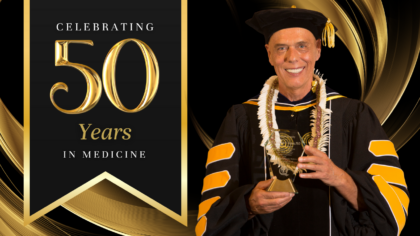Earn Your Herbalist Certification: A Step-by-Step Guide

In recent years, herbalism has seen a remarkable resurgence, gaining recognition for its holistic approach to health. Rooted in the use of plants for healing, it’s now at the forefront of natural medicine. With a growing demand for natural alternatives, certified Herbalist Health Coaches are in high demand, making their expertise more valuable than ever. This step-by-step guide will walk you through how to become a Herbalist Health Coach.
Step 1: Understanding Herbalism
Before starting your journey of becoming a Herbalist Health Coach, it is important to understand the basics. It is the art and science of utilizing plants and their extracts for therapeutic purposes, aiming to prevent, alleviate, or heal various ailments and diseases. At its core, herbalism is about more than just applying plant-based remedies. It embodies a holistic approach to health, considering the physical, emotional, and spiritual well-being of the individual.
The Importance of Herbalism in Natural Medicine
In today’s health-conscious society, herbalism contributes significantly to preventive health care and the treatment of chronic conditions. Its importance lies in its accessibility, sustainability, and the minimal side effects of herbal remedies compared to synthetic drugs. With a growing body of research supporting the efficacy of herbal treatments, the practice of herbalism is experiencing a resurgence, as people seek safe, natural alternatives to conventional medicine.
Scope of Practice for a Herbalist Health Coach
A Herbalist Health Coach possesses the knowledge and skills to:
- Assess Health Conditions: Conduct holistic health assessments, taking into account a person’s overall health, lifestyle, and nutrition, to identify underlying causes of imbalance or disease.
- Design Herbal Remedies: Formulate and recommend herbal remedies tailored to individual needs, including teas, tinctures, capsules, and topicals.
- Educate on Herbal Usage: Guide the proper use of herbs, including dosages, potential interactions with medications, and safety considerations.
- Promote Wellness: Advise on dietary and lifestyle changes to support health and wellness, emphasizing the preventive aspect of herbal medicine.
The career of a Herbalist Health Coach is diverse, offering opportunities to work in health and wellness clinics, herbal dispensaries, or private practice. Many herbalists also engage in teaching, research, and the cultivation of medicinal plants, contributing to the growth and sustainability of herbal medicine.
Step 2: Choosing the Right Herbalist Training Program
Selecting the right herbalist school is vital, impacting your career and effectiveness as a practitioner. To ensure that you embark on a path that aligns with your aspirations, consider the following key factors when evaluating herbalist programs:
Curriculum
- Comprehensiveness: Look for a curriculum that covers a broad spectrum of herbal knowledge, from the fundamentals of plant biology to advanced topics. It should provide a solid foundation in the science and art of herbalism, including identification, harvesting, and preparation of herbal remedies.
- Holistic Approach: Given the holistic nature of herbalism, the program should integrate teachings on nutrition, wellness, and complementary health practices. A holistic curriculum ensures that you can provide well-rounded advice and treatment plans to your clients.
Faculty Expertise
- Qualified Instructors: The faculty should consist of experienced and qualified herbalists. Look into the instructors’ backgrounds, including their education, experience, and areas of specialty. Learning from seasoned practitioners enriches your educational experience and provides insights into various career paths in herbalism.
- Accessibility and Support: Consider online herbalist certifications that offer flexibility in learning while still providing access to guidance, mentorship, and support. A supportive online learning environment can significantly enhance your educational journey.
Integration of Career-Building Knowledge
- Business Skills: For many herbalists, launching a private practice or starting a business is a goal. Programs that incorporate career training, including courses on ethics and coaching skills can be incredibly beneficial.
Step 3: Achieving Herbalist Health Coach Certification
After completing your herbalist training program, you’re prepared for certification. It’s a significant milestone in your journey to professional expertise in herbal medicine. Here’s what you need to know about obtaining herbalist certification:
Understanding the Certification Process
- Certification requirements vary depending on the program. Familiarize yourself with the specific requirements of your chosen certification program to ensure you meet all prerequisites before applying.
Recognized Certifications in Herbalism
- Research reputable certification organizations to understand their requirements, benefits, and industry recognition. Here are some notable certifications:
- Board Certified Health Coach (BCHC), certified by the American Association of Drugless Practitioners (AADP)
- Board Certified Health Coach (BCHC), certified by the American Naturopathic Medical Certification Board (ANMCB)
- Herbalist Health Coach (HHC), certified by The International Practitioners of Holistic Medicine (IPHM)
Step 4: Exploring Career Paths in Herbalism
As a certified Herbalist Health Coach, a world of diverse and fulfilling career opportunities awaits you. Here’s a glimpse into the exciting paths you can explore:
Private Practice
- Many Herbalist Health Coaches choose to establish their private practice, offering consultations, herbal remedies, and personalized wellness plans to clients seeking natural healthcare solutions.
Herbal Product Development
- Herbalist Health Coaches with a passion for formulation and product development may pursue careers in creating herbal supplements, teas, tinctures, skincare products, and other herbal remedies. This career path allows herbalists to blend their knowledge of herbal medicine with entrepreneurship, bringing innovative and high-quality herbal products to market.
Education and Teaching
- They may pursue opportunities as herbalism educators, teaching classes, workshops, and seminars to aspiring herbalists and the general public. By educating others about the benefits of herbal medicine, herbalists can inspire a new generation of healers and advocates for natural health.
Research and Development
- Herbalists with a strong foundation in science and research may choose to pursue careers in herbal medicine research, exploring the efficacy and safety of herbal remedies through clinical trials and studies.
Whether you choose to embark on a traditional career path in herbalism or carve out your niche in the industry through entrepreneurship and innovation, your certification as a herbalist opens doors to a rewarding and impactful career dedicated to promoting health and wellness through the power of plants.
Quantum University’s Herbalist Health Coach Program
Quantum University’s Herbalist Health Coach Program offers a unique blend of traditional herbalism and modern health coaching techniques, empowering students to become holistic practitioners who support individuals in achieving optimal wellness. Here are some benefits of completing the training with Quantum University:
Comprehensive Curriculum
What sets Quantum University’s program apart is its integration of herbal medicine courses with health coaching principles. The Herbalist Health Coach Program is a comprehensive curriculum that covers a wide range of topics essential for effective holistic health coaching. Students will learn the principles of herbalism, including the medicinal properties of herbs, herbal preparations, and their applications in promoting health and healing. Plus, they gain expertise in areas such as Holistic Nutrition, Holistic Anatomy, Coaching and Communication Skills, and Client Relations and Professional Ethics.
Expert Faculty
Students enrolled in the Herbalist Health Coach Program at Quantum University are privileged to learn from a distinguished faculty comprised of world-class leaders in the fields of herbalism, nutrition, coaching, and holistic health. Esteemed faculty members include renowned experts such as Matthew Wood, a widely recognized herbalist, author, and consultant; Dr. Cindy Bloomfield, a Board Certified Health Practitioner and accomplished author; and Dr. Paul Drouin, the President and Founder of Quantum University.
In addition to benefiting from the wealth of knowledge and experience brought by these esteemed professionals, students receive personalized support and mentorship throughout their educational journey. This individualized attention fosters a strong sense of community and collaboration among peers, creating an enriching learning environment where students can thrive and grow both personally and professionally.
Certification and Career Opportunities
Upon completion of the program, graduates can apply directly to professional certification boards and earn the title of Board Certified Herbalist Health Coach, preparing them for a variety of career paths in the growing field of holistic health and wellness. Whether working independently, in wellness centers, or as part of integrative healthcare teams, Herbalist Health Coaches play a vital role in supporting individuals on their path to optimal health and well-being.
Start Your Herbalism Training Journey
Advance your career by becoming a Herbalist Health Coach with a degree from Quantum University. Our comprehensive program will equip you with the knowledge and skills to effectively transform the lives of others. Reach out today and take the first step towards a rewarding career in herbalism.


























